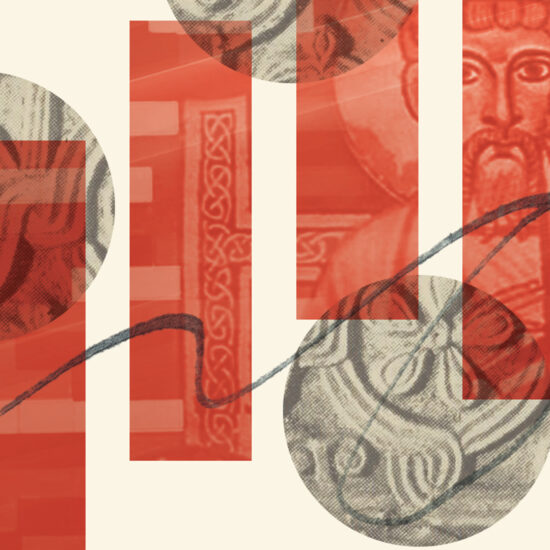 God Has Spoken
God Has Spoken
Formations: December 30, 2018
Scripture: Hebrews 1
 Michael K OlmstedIn the iconic movie “The Wizard of Oz,” the message of finding your place in life is dramatically staged when Dorothy and her friends enter the throne room of “The Great Oz.” Toto, Dorothy’s beloved dog, dispels the magical powers of the wizard by pulling aside the curtain hiding a mere man controlling the sham sounds and larger-than-life appearance of the wizard. The scene concludes with folksy wisdom and Dorothy returning to consciousness in the real world.
Michael K OlmstedIn the iconic movie “The Wizard of Oz,” the message of finding your place in life is dramatically staged when Dorothy and her friends enter the throne room of “The Great Oz.” Toto, Dorothy’s beloved dog, dispels the magical powers of the wizard by pulling aside the curtain hiding a mere man controlling the sham sounds and larger-than-life appearance of the wizard. The scene concludes with folksy wisdom and Dorothy returning to consciousness in the real world.
Try describing God. Do words like eternal, ethereal, ultimate or unequaled work? You can use all the philosophical or religious language known, but none of it will pull back the curtain and enable you to see the God who is behind it all, the God who is the very ground of reality. The writer of Hebrews confronts our limited capacity to describe God when he points out the prophets of old could not present an ultimate picture of God, although they made it clear God cares about us. The answer our heart longs to know is stated: “In these last days (God) has spoken to us by a Son, whom (God) appointed as heir of all things, through whom he has created the worlds. He is the reflection of God’s glory and the exact imprint of God’s very being” (v. 2). These words remind us of the Apostle John’s description of Jesus: “In the beginning was the Word, and the Word was with God, and the Word was God … all things came into being through Him … in Him was life, and the life was the light of men” (John 1:1-4). Simply stated, the God who is beyond human definition chose to enter our reality so we may know him and the incomparable experience of his love.
Hebrews 1 is easily divided into two sections. Section 1 (verses 1-4) details seven facts about the powerful position of God’s Son. He is heir of all things, creator, reflection of God’s glory, the perfect impression of God’s being, sustainer of all things, the one who accomplishes purification of our sins and sits at the right hand of the God the Father for eternity. Section 2 (verses 5-14) presents the superiority of the Son over the angels by referencing eight passages from the Old Testament that refer to the Son, the angels or both. Those definitive passages include: Psalm 2:7; 2 Samuel 7:14; Psalm 97:7; Deuteronomy 32:43; Psalm 104:4; Psalm 45:6-7; Psalm 102:25-27; and Psalm 110:1.
Hebrews focuses on Jesus as God’s ultimate revelation of himself:
1) The Son is one with the creator God. From as early as creation and the garden called Eden in Genesis, God the Father was creating humanity and preparing to bring us into a relationship with him by being our Savior. We often speak of God as “Creator, Redeemer, Sustainer” because God wants us to be his children in every stage of life. All the Old Testament is a prelude to the good news. Jesus says: “I am the way, the truth, and the life. No one comes to the Father except through me” (John 14:6).
2) Jesus Christ offers himself as the perfect sacrifice. Creation becomes a spiral of tragedy and hopelessness without God’s presence and promises. Hebrews reaches back into the saga of God’s unfolding love, showing that Jesus becomes God’s “great high priest,” offering himself as the perfect sacrifice for all who will believe. Jesus is God as redeemer, seated at the right hand of God, the perfect expression of God’s grace (v. 3).
3) The Son of God is superior to angels. Angels were a topic of great interest among the Jews as well as in pagan religions. The Hebrew and Greek words we translate as “angel” literally means “messenger.” Remember the angel Gabriel’s announcement to Mary that she would give birth to God’s Son. Angles often appear in biblical texts describing the throne room of heaven and appear as God’s army. But angels were created beings: God “makes his angels winds and his servants flames of fire” (v. 7). But notice the clear difference: “But of the Son God says ‘Your throne, O God, is forever and ever, and the righteous scepter is the scepter of your kingdom” (v. 8).
In the first century, as in every generation, there are attempts to make Jesus a reflection of the character of God, a unique prophet preaching a philosophy of love and equality or a spiritual person who embodies all great philosophers. But this Jesus is more. He is one with God, the fullness of God’s grace, greater than angels, the beginning of all that exists, who gave up his throne in glory to be one of us. And he so completely took upon himself our humanity that he willingly died in our place that we can live beyond the brokenness of this world. This Jesus rose from the grave, ascended to heaven where he is seated at the right hand of the Father, where he intercedes for us forever. One day this world will be replaced with a new reality, a perfect kingdom unlike anything we can build, and the risen victorious Christ will welcome us.
Advent is not a season for looking back. We begin a new year, a time to share the love of God, to offer the world an example of life marked by hope, compassion, a new beginning. There will still be bad news, hateful statements, violence, selfishness and hopelessness.
So it was when Jesus was born. God was at work, but so few could visualize the hope. We are not angels. We are not perfect like Jesus. But we are people whose hearts and lives have been touched by the grace of God. If we determine to love and trust God, to stand for goodness and decency and to share God’s grace in a world torn by anger and selfishness, then others will begin to know a better way to live.
God has spoken. Now we must become his word of grace in a lost world.
Retired after almost 50 years in pastoral ministry, Michael K. Olmsted enjoys family, supply preaching and interim work, literature, history, the arts and antiques.
Formations is a curriculum series from Smyth & Helwys Publishing, Inc. through NextSunday Resources.
The PDF download requires the free Acrobat Reader program. It can be downloaded and installed at https://get.adobe.com/reader (uncheck optional offers first).



